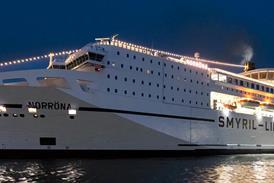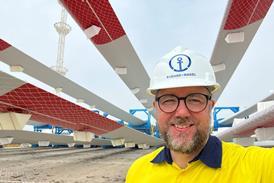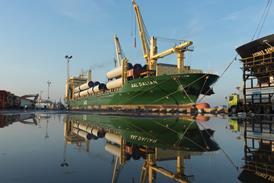March 5 - The American Association of Port Authorities (AAPA) has expressed both encouragement and disappointment over the funding levels and programmatic changes in federal port-related programmes that were proposed in the President's FY 2015 budget.
While the budget proposal included funding for a new National Infrastructure Investment programme, it also decreases funding for the Corps of Engineers' modernisation and maintenance programmes for seaports and eliminates the Environmental Protection Agency's (EPA) Diesel Emissions Reduction Act grant programmer.
AAPA was encouraged by the Administration's plan to increase funding for transportation infrastructure within the Department of Transportation. The President proposed the creation of a USD1.25 billion trust fund for multimodal transportation infrastructure, which would increase and sustain funding of the TIGER grants programme and establish a new freight grant programmer aimed at enhancing the competitiveness of the US in the global marketplace.
The proposed new multimodal account for rail, highway and port projects would seek to address the greatest needs for the efficient movement of goods across the country and abroad.
"AAPA believes these grants would have strong and positive effects on freight system improvement, although we don't know yet how much is specifically proposed for improving landside connections with America's ports and their landside connections," said Kurt Nagle, AAPA's president and CEO.
AAPA has strongly advocated for continuing TIGER program funding and dedicating at least 25 percent of the grants to port-related infrastructure, added Nagle.
But other areas of the President's budget request were less encouraging, said AAPA. The Corps of Engineers' civil works funding decreased 5.8 percent from the FY 2014 budget to USD4.56 billion.
"The Corps of Engineers' budget proposal falls well short of the waterside maintenance and modernisation needs of this country. We were disappointed to see that the budget request for Corps port-related programs decreased from the FY 2014 enacted budget in both the operations and maintenance and the construction accounts, despite the President's call to upgrade U.S. ports and the goal of doubling exports," said Nagle.
"Our nation is at a critical point in maintaining our international competitiveness, and the FY 2015 budget request would result in trade-related infrastructure losing further ground at a time when we are already behind many of our competitors," he added.
Funding for improved federal channels would take another significant hit under the President's budget. The budget request contains a 10 percent decrease in FY 2015 from FY 2014 in channel improvements.
The enthusiasm generated from the President's and Vice President's port tours and discussions in 2013 and inclusion of the need to upgrade our ports in the January State of the Union address has been dampened by the budget request, said the AAPA.
"As the Administration and Congress grapple with the multiple goals of reducing the nation's debt while growing jobs and the economy, federal investments in ports and their connecting infrastructure continue to be an essential, effective utilisation of limited resources, paying dividends through increased trade, jobs and over USD20 billion a year in tax revenues," said Nagle.

McDuffie Terminal, Alabama Port Authority
















